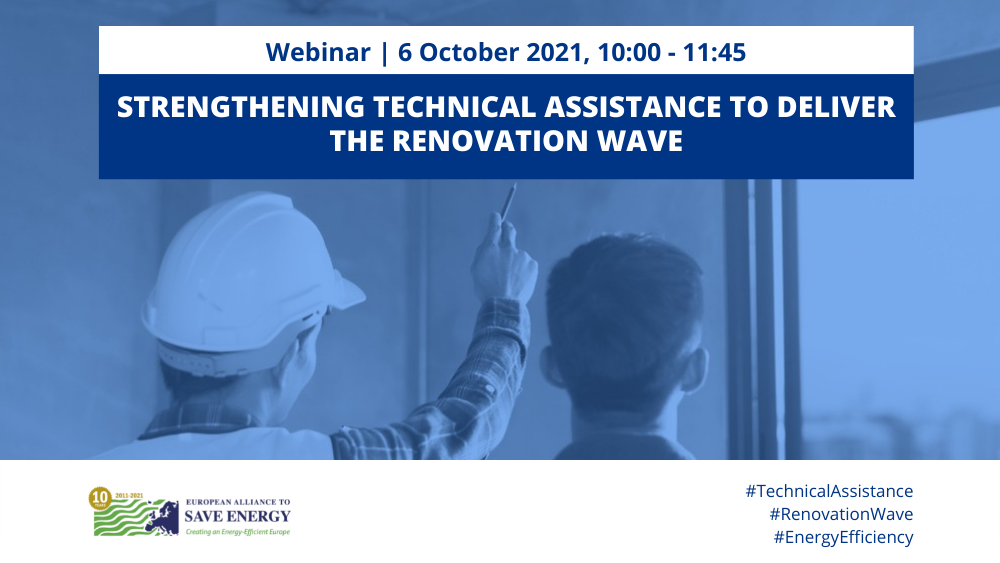Strengthening technical assistance to deliver the Renovation Wave

AGENDA
10:00 Setting the scene and moderation
Monica Frassoni, President, European Alliance to Save Energy
10:05 Cohesion policies and technical assistance
Nicola de Michelis, Director for Smart & Sustainable Growth and Programme Implementation, DG Regio, European Commission
Cristina Rehberger, Deputy Director for Programming & Evaluation of European Funds, Ministry of Finance, Spain
Quentin Galland, Public Affairs Director, Knauf Insulation
Jordi Manrique, Public and Government Affairs Manager, Signify Spain & Portugal
10:35 Supporting Member States to implement energy efficiency projects
Nathalie Berger, Director for Support to Member States’ Reforms, DG Reform, European Commission
Renzo Tomellini, Head of the Technical Secretariat of Minister Cingolani, Ministry of Ecological Transition, Italy
Brook Riley, Head of EU Affairs, Rockwool
Julie Kjestrup, Head of EU Affairs, Danfoss
11:05 Boosting technical assistance through EU legislation
Paula Pinho, Director for Just Transition, Consumers, Energy Efficiency and Innovation, DG Energy, European Commission
Bertrand Deprez, Vice President EU Government Affairs, Schneider Electric
Harry Verhaar, Head of Global Public and Affairs, Signify
Lack of technical support and inadequate administrative capacity are among the key barriers preventing the scale-up of energy efficiency projects in the EU Member States.
Technical assistance plays a central role in removing the administrative, financial and other hurdles for ministries, cities, local authorities, businesses and households to renovate buildings. This webinar brought together representatives of the European Commission, national governments and leading businesses to discuss how to strengthen technical assistance and deliver a wave of renovations across Europe.

